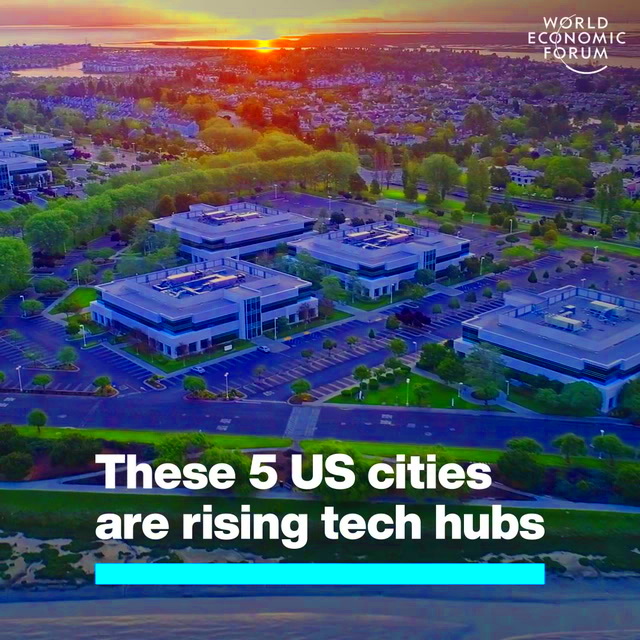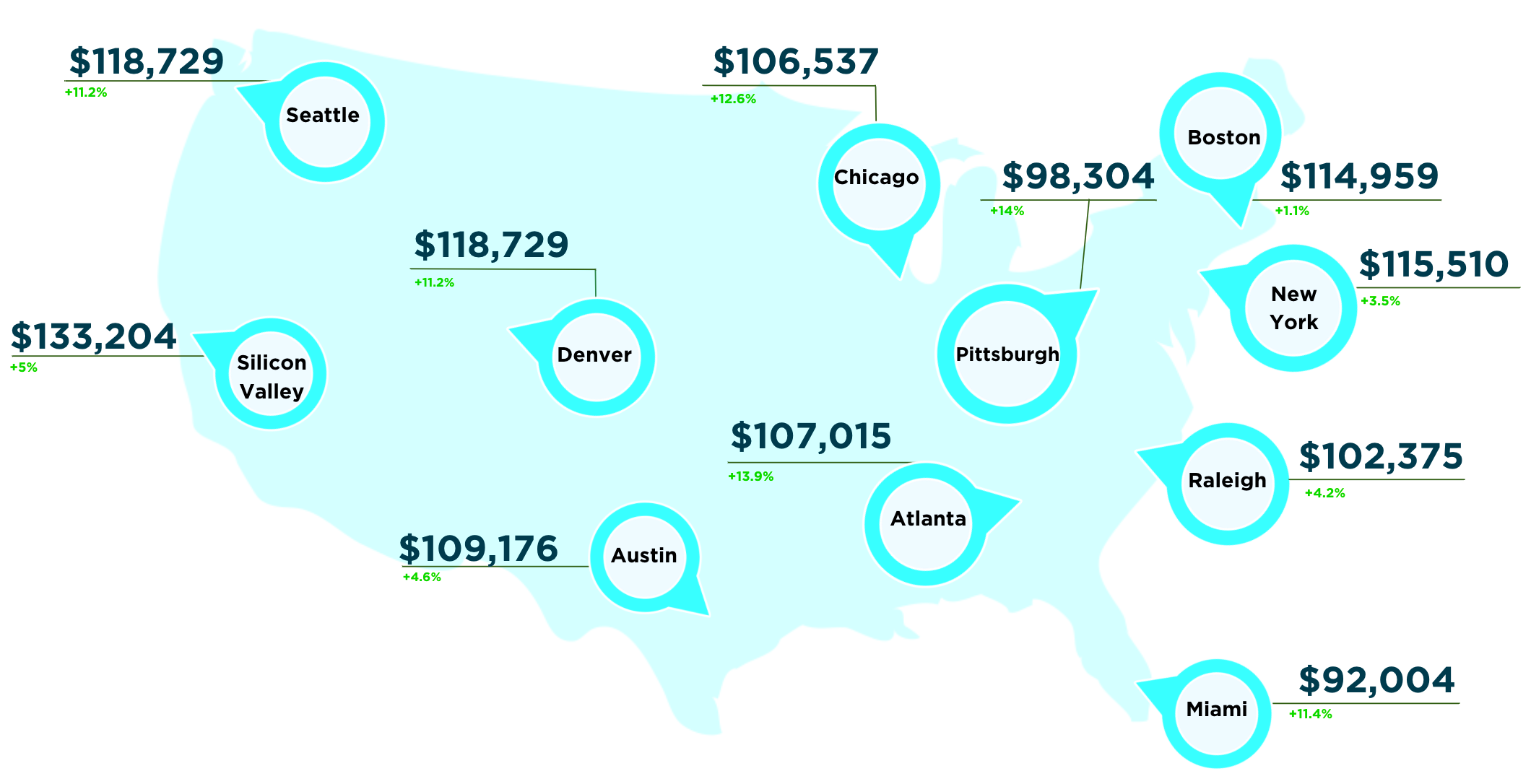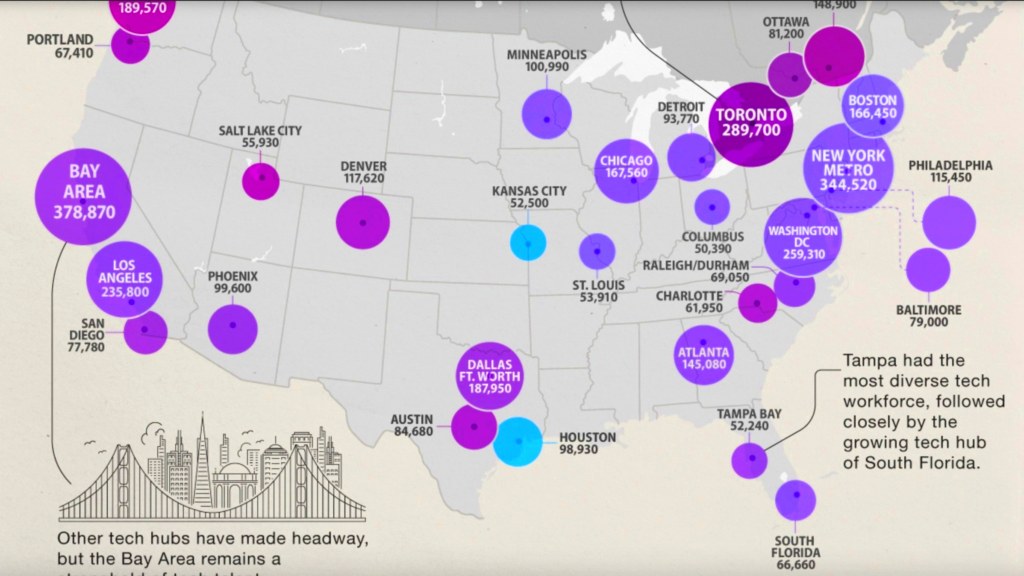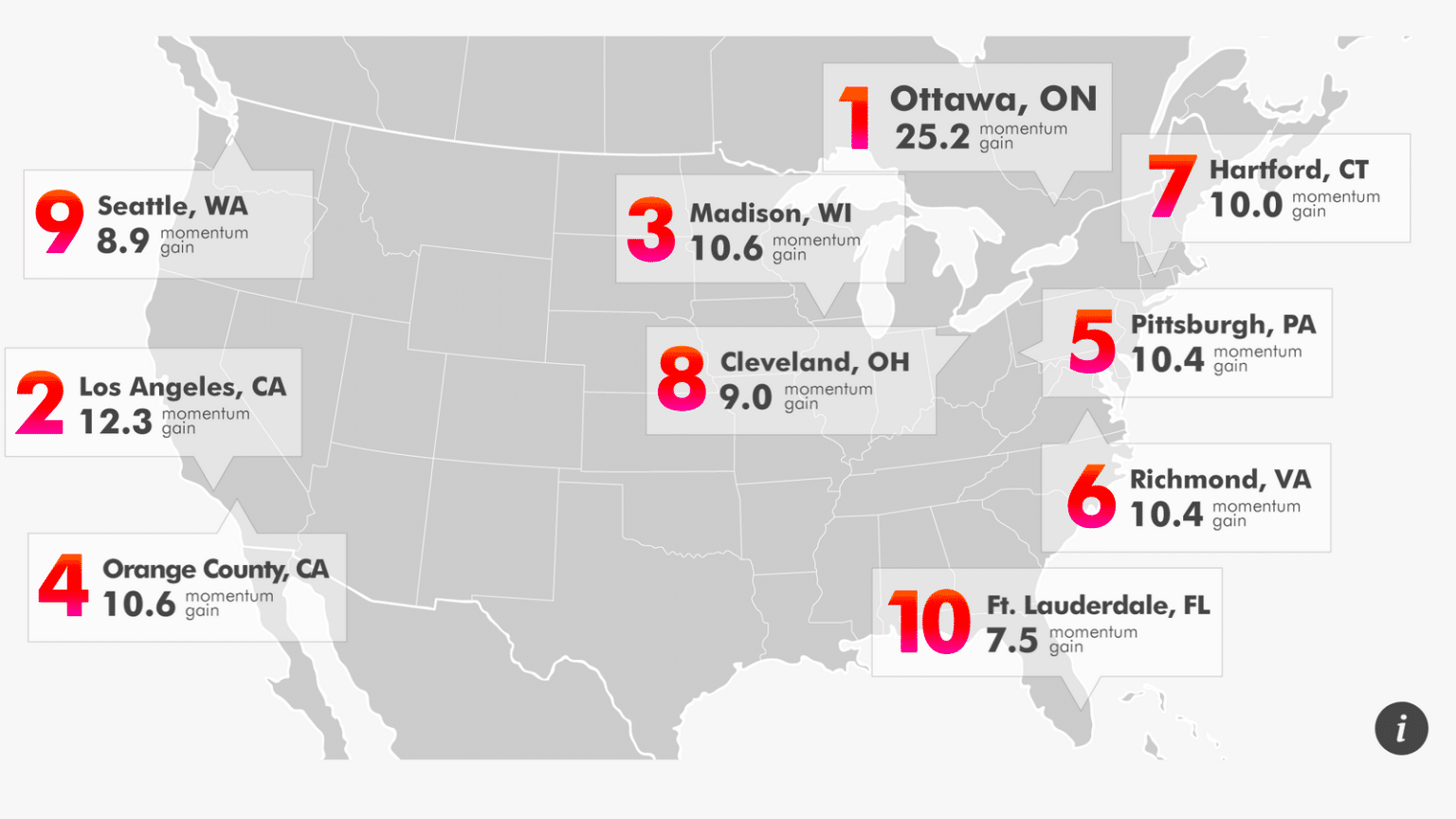Innovation and economic growth within the United States thrive in
technology centers. Regions and cities like these attract budding entrepreneurs, skilled immigrants on visas,
technology companies with aspirations for global relevance. Tech-boom cities like San Francisco and Austin have transformed the way we work and live. They stimulate creative minds, generate employment opportunities, help determine how
Understanding the Growth of Technology Hubs

There are a few important reasons for the expansion of
technology centers within America:
- Access to Talent: Many tech companies are located near universities and colleges, providing a steady stream of skilled graduates ready to join the workforce.
- Investment Opportunities: Venture capital firms are often attracted to areas with a high concentration of tech startups, leading to increased funding and growth potential.
- Networking and Collaboration: Proximity to other tech companies fosters collaboration, leading to innovative ideas and projects.
- Supportive Ecosystems: Local governments often implement policies that encourage entrepreneurship, such as tax incentives and grants.
This self-reinforcing cycle results from these factors, causing the presence of one tech company to draw in others, thus enhancing the
technology hub.
Key Players in Major Tech Hubs

Every tech hinterland possesses a distinct appearance of firms and influencers. Below are some key players in three main tech hubs:
| Tech Hub | Key Companies | Notable Startups | Influential Figures |
|---|
| Silicon Valley | Google, Apple, Facebook | Airbnb, Lyft | Elon Musk, Mark Zuckerberg |
| Austin | Oracle, Dell | Chickpea, WP Engine | Michael Dell, Josh Baer |
| Seattle | Amazon, Microsoft | Remitly, Convoy | Jeff Bezos, Satya Nadella |
Both local and national development is driven by these players as they innovate and strengthen their respective
technology hubs.
Impact of Tech Hubs on Local Economies

The local economy depends greatly on the tech hubs, and they can benefit more than just the industry of
technology. They stimulates development through generating employment opportunities, increased earnings and improved operations in their environments. Here’s how tech hubs are making an impact:
- Job Creation: Tech hubs attract companies that need skilled workers. This leads to the creation of thousands of jobs, from entry-level positions to executive roles.
- Higher Wages: The demand for tech talent often leads to competitive salaries. This not only benefits tech workers but also raises wage standards in other sectors.
- Business Opportunities: As tech companies flourish, they create demand for various services—everything from real estate to catering—boosting local businesses.
- Increased Tax Revenue: More businesses mean more tax income for local governments, which can be invested in public services and infrastructure.
In addition, the lively culture of technological centers frequently causes an increase in number of inhabitants who come to live there, thus promoting the development of the local environment as a whole. Vibrant tech industry can transform a city into an attractive place for living, drawing people from diverse racial and professional backgrounds.
Challenges Faced by Tech Hubs
The tech centers have numerous advantages but at the same time they encounter various obstacles that can impede their growth and sustainability. Some of these are:
- Cost of Living: The rapid growth in tech hubs often drives up housing prices, making it difficult for average workers to afford living in these areas.
- Talent Shortages: Despite their appeal, many tech hubs struggle to find enough skilled workers to meet the demands of their growing industries.
- Infrastructure Strain: Increased population can lead to congested roads, inadequate public transport, and overstretched services.
- Income Inequality: The high wages in tech can widen the gap between tech workers and those in lower-paying jobs, leading to social tension.
Tackling these obstacles is vital for the sustained triumph of technology centers. It takes government, business, and community collaboration to come up with long-term answers that are mutually advantageous.
Future Trends in Technology Development
The environment in which technology exists is a dynamic entity that is undergoing constant changes. Some of these changes may lead to the emergence of new trends that will shape how tech hubs will develop in the future. The following are some of them:
- Remote Work Expansion: The pandemic accelerated the shift to remote work. Many tech companies are now embracing hybrid models, allowing them to tap into global talent.
- Increased Focus on Sustainability: Tech hubs are likely to invest more in sustainable technologies and practices, addressing climate change while boosting innovation.
- Rise of Artificial Intelligence: AI continues to advance, impacting various sectors. Companies focusing on AI research and applications may become central to tech hubs.
- Diversity and Inclusion Initiatives: There’s a growing emphasis on creating diverse workplaces, which can lead to more innovation and improved company culture.
It is expected that these trends will have remarkable impacts on the techno acculturative environment, thus making tech hubs more crucial for both economical and social reasons entirely.
FAQs About Tech Hubs in the USA
Tech hubs can be a little complicated if you don’t understand them, so here are some common questions that would help in having an insight about them:
What is a tech hub?
A technology hub is characterized by a region in which there are elevated levels of technological business establishments, new ventures, as well as brilliance. In such locations, people within the information technology sector come together to share ideas through research and innovation.
Why are tech hubs important?
Economic growth is propelled, jobs are created, and local economies stimulated by tech hubs. They attract investors and foster innovation which brings about technological advancements in multiple sectors.
What are some well-known tech hubs in the USA?
The following are among the most well-known technology centers:
- Silicon Valley, California: Home to tech giants like Apple and Google.
- Austin, Texas: Known for its vibrant startup scene.
- Seattle, Washington: Headquarters of Amazon and Microsoft.
- New York City, New York: A diverse tech ecosystem with a focus on media and finance.
How do tech hubs impact local communities?
Local communities experience upliftment through job creation, wage growth and increased economic activities brought about by technology hubs. These hubs also attract talented individuals hence enhancing cultural diversity.
What challenges do tech hubs face?
Unusual rising housing costs, shortages of talent, and infrastructure strain are some common challenges associated. It is important to note that in order for sustainable growth these must be dealt with.
Conclusion on the Role of Tech Hubs in Economic Growth
Ultimately, it is evident that tech hubs hold an important position in helping to increase economic development and innovation across the United States. They generate employment opportunities, draw funds, as well as develop teamwork which not only helps local areas but also improves the national level of technology.Consequently, moving forward addressing issues among these tech hubs becomes crucial for them to have a sustainable future with much influence.
 There are a few important reasons for the expansion of technology centers within America:
There are a few important reasons for the expansion of technology centers within America: Every tech hinterland possesses a distinct appearance of firms and influencers. Below are some key players in three main tech hubs:
Every tech hinterland possesses a distinct appearance of firms and influencers. Below are some key players in three main tech hubs: The local economy depends greatly on the tech hubs, and they can benefit more than just the industry of technology. They stimulates development through generating employment opportunities, increased earnings and improved operations in their environments. Here’s how tech hubs are making an impact:
The local economy depends greatly on the tech hubs, and they can benefit more than just the industry of technology. They stimulates development through generating employment opportunities, increased earnings and improved operations in their environments. Here’s how tech hubs are making an impact:
 admin
admin








